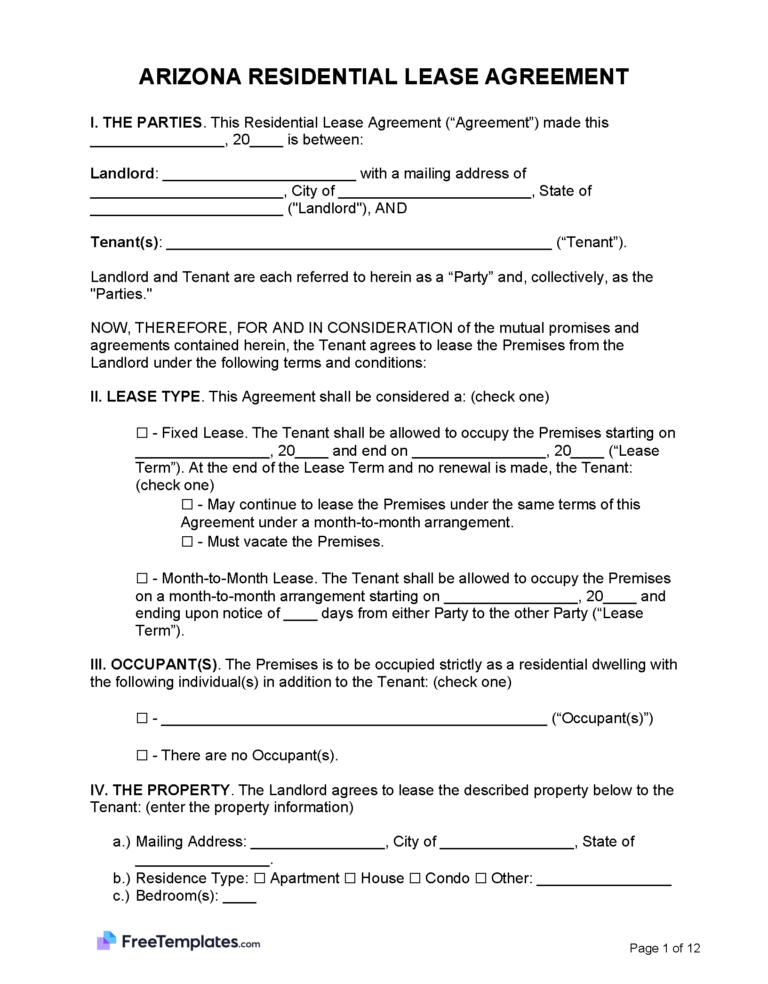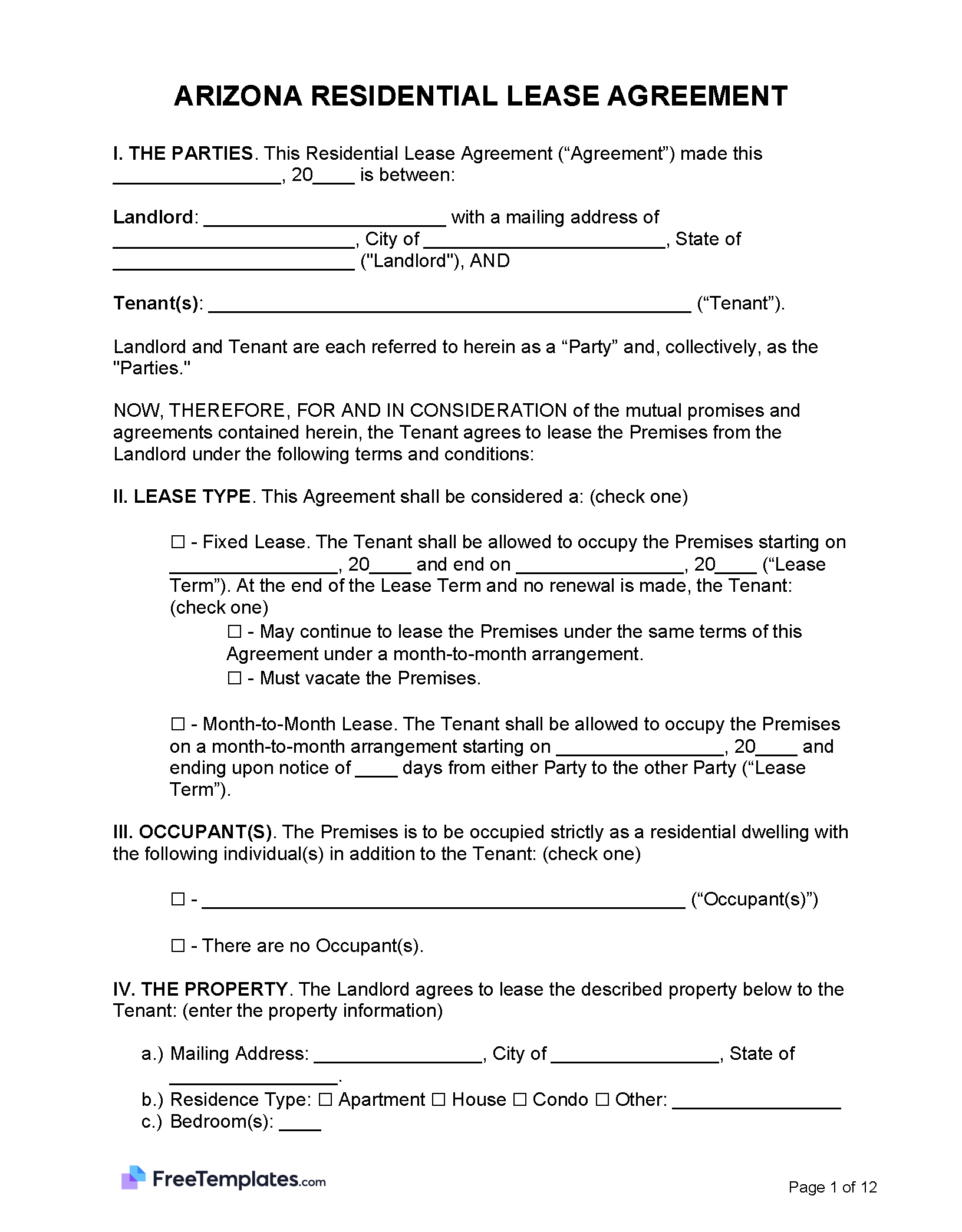By Type (6)
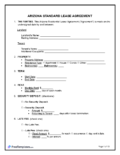 Standard Lease Agreement – A fixed-term, legally binding document between a landlord and a tenant. The typical length of the contract is 12 months (1 year). Standard Lease Agreement – A fixed-term, legally binding document between a landlord and a tenant. The typical length of the contract is 12 months (1 year).Download: PDF, MS Word, ODT |
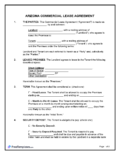 Commercial Lease Agreement – A legal document that outlines the terms and conditions for a business to rent a property. Commercial Lease Agreement – A legal document that outlines the terms and conditions for a business to rent a property.Download: PDF, MS Word, ODT |
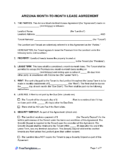 Month-to-Month Lease Agreement – A monthly rental contract allowing tenants and landlords to rent a property in 30-day day periods. Month-to-Month Lease Agreement – A monthly rental contract allowing tenants and landlords to rent a property in 30-day day periods.Download: PDF, MS Word, ODT |
| Rent-to-Own Agreement – A contract that outlines the terms and conditions of the tenant purchasing the property after a specified period. Download: PDF, MS Word, ODT |
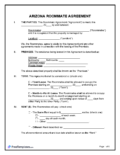 Roommate Agreement – A legal document that defines the rental terms between multiple tenants sharing a rented property. Roommate Agreement – A legal document that defines the rental terms between multiple tenants sharing a rented property.Download: PDF, MS Word, ODT |
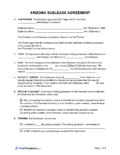 Sublease Agreement – A formal arrangement where the original tenant, the sublessor, rents out all or part of the renal property to another party, the subtenant. Sublease Agreement – A formal arrangement where the original tenant, the sublessor, rents out all or part of the renal property to another party, the subtenant.Download: PDF, MS Word, ODT |
Disclosures (10)
Bed Bug Disclosure – Before the lease is signed, the landlord must alert tenants of any known bed bug infestation in the rented property. This disclosure protects tenants from potential health hazards and ensures transparency in rental agreements. (A.R.S. § 33-1319)
Landlord Contract Details Disclosure – This regulation provides tenants with essential details on their landlords’ identities and contact information. Contact information must be given before the tenant signs the rental lease, including the owner’s or manager’s name and address. (A.R.S. § 33-1322(B))
Lead-Based Paint Disclosure – Landlords of residential properties built before 1978 must disclose any known presence of lead-based paint hazards. This requirement protects tenants, especially with young children, from potential health risks.
Marijuana Use Policy Disclosure – Landlords must alert tenants of any restrictions regarding marijuana use, cultivation, or possession on the leased premises so that tenants can maintain compliance with state laws and lease agreements. (A.R.S. § 36-2813(C))
Move-In / Move-Out Checklist Disclosure – Landlords must provide tenants with a detailed checklist of the property’s condition at the beginning of the lease to establish a clear record of the rental’s condition. This regulation helps prevent disputes over damages and security deposit deductions. (A.R.S. § 33-1321(C))
Non-Refundable Fees Disclosure – Landlords must outline any non-refundable fees charged to tenants beyond the security deposit. (A.R.S. § 33-1321(B))
Pool Safety Notice Disclosure – Landlords must inform tenants about any safety measures or regulations regarding using swimming pools on the leased property to ensure the well-being of tenants and visitors. (A.R.S. § 36-1681)
Rent Increases Due To Taxes Disclosure – Landlords can increase rent if property taxes increase, so long as they give proper notice (typically 30 days). Arizona landlord-tenant laws regulate this. (A.R.S. § 33-1314(E))
Shared Utilities Disclosure – If landlords bill tenants for utilities based on a shared meter, they must specify the calculation method in the rental contract. Landlords can recoup additional administrative costs associated with calculating and paying the utilities. (A.R.S. § 33-1314.01)
Notification of the Landlord-Tenant Act – Landlords must give written notice that the Arizona Residential Landlord and Tenant Act (ARLTA) is available on the state’s Department of Housing’s website. This disclosure ensures transparency surrounding tenant rights and responsibilities as regulated under state law. (A.R.S. § 33-1322(B))
Security Deposit
Maximum Amount – Landlords cannot charge more than 1 ½ months’ rent as a security deposit. However, the tenant may choose to pay more. (A.R.S. § 33-1321(A))
Returning to Tenant – Landlords must return the security deposit to the tenant within fourteen (14) business days of the lease’s termination. (A.R.S. § 33-1321(D))
- Deductions – Should the landlord make any deductions, they must provide a detailed list outlining the costs. Tenants have 60 days to dispute any wrongful deductions. (A.R.S. § 33-1321(D))
- Interest – In Arizona, landlords do not need to pay interest on the tenant’s security deposit.
Landlord Access
General Access – For non-emergency inspection or maintenance, landlords must give 48-hour notice before entrance. (A.R.S. § 33-1343(A))
Emergency Access – Landlords may enter the rental property without notice for emergencies. (A.R.S. § 33-1343(C))
Paying Rent
Grace Period – Arizona does not mandate a grace period for late rent payments, but landlords can agree upon one in the lease agreement. (A.R.S. § 33-1314(C))
Maximum Late Fee – If the tenant is more than six (6) days delayed in paying their rent, landlords can charge up to $5 a day. (A.R.S. § 33-1414)
Returned Checks (NSF) – If outlined in the lease agreement, landlords can charge up to $25, plus any charges imposed by their bank, for any checks returned with insufficient funds. (A.R.S. § 44-6852)
Withholding Rent – If the landlord fails to provide essential services and utilities, following Arizona statute, tenants have the right to withhold their rent payment. (A.R.S. § 33-1364(A))
Reasons for Eviction (3)
Non-Payment of Rent – Landlords are permitted to give a 5-, 10-, or 30-day Notice to Quit if rent is not paid in full within 5 days, which gives the renter 5, 10, or 30 days to vacate the property. (A.R.S. § 33-1368(B))
- Partial Rent Payment – If the landlord accepts a portion of the rent due, they cannot evict the tenant that month unless otherwise disclosed. (A.R.S. § 33-1371)
Non-Compliance – The landlord can legally evict the tenant if they violate the lease agreement. (A.R.S. § 33-1368(A))
Failure to Maintain – If the tenant fails to maintain the rental unit, which affects health and safety, the landlord must give written notice outlining the problem and five (5) days to fix it. (A.R.S. §33-1368(A))
